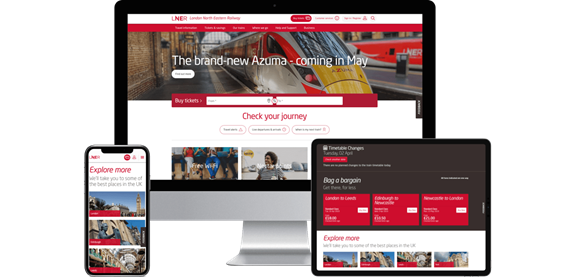Quick fixes
In the past the solution was to apply some patches, fixes and workarounds, generally set ‘realistic’ expectations with your user base and customers and wait for the next opportunity to start from scratch with another hefty investment.
This scenario is never sustainable and in today’s transformational marketplace it can be business and/or career ending. But there is another way: Sustainable Development and Support.
Longer term value
The key is to focus on extending the lifetime of the IT products we develop and ensuring they continue delivering value at the same levels of better.
Sustainable Support is all about designing and delivering services which evolve the products in a consistent and controlled manner, with a focus on delivering incremental value over just ‘change’. This means a better product, an extended lifetime with reduced risk of large cap-ex investment.
It’s still about the people
Sustainable solution support services require a focus on people. Particularly on large scale projects that depend on many individuals rather than a handful of techies.
Consistency and continuity of key development resources is crucial for long term value. Ideally, a Sustainable Support service would be delivered by the engineers who developed the supported product.
In a perfect world the development team becomes the support and optimisation team. These are the people who understand the solution and where and why compromises were made. Most importantly they understand what has added value during development and they continue building on that for future iterations.
If a key development resource does have to move on, a complete handover, including full documentation, should be undertaken. Departing engineers should share their knowledge and experience.
Client teams should be trained to use the IT solution effectively. This guards against wasting budget on simple queries. Training can take many forms but we’ve found that recorded webinars, along with FAQs and other knowledge bases, are extremely effective.
Constant improvement
Also key to Sustainable Support is an ethos that things are never done. This applies both to the digital product being supported and the services built around it.
This means measuring, monitoring, alerting and reporting on the right things with a focus on their impact on the value of the product.
Efficient processes are required to analyse and act upon this information. A Sustainable Support service should be focused on spotting and dealing with issues before they become incidents. Products should make smooth and elegant progress throughout their long lifetimes, not lurch from one stressful crisis to the next.
Whenever issues and incidents occur there needs to be a consistent focus on understanding the underlying cause and a commitment to developing a sustainable solution. A tactical fix might be necessary to get things working but it cannot be allowed to remain in place without proper analysis as to whether it’s the best IT solution.
Constant change
Obviously constant improvement doesn’t just come from reacting to issues and incidents. The sustainable product and solution needs to evolve with additional features over time to support the changes in business focus and strategy.
The incremental changes should be focused on adding value – both to the customer and to the product – and should always be done sustainably to help extend the lifetime of the product
Teams should be set up to manage larger scale, complex changes in parallel to ‘always on’, day-to-day fixes and future enhancements. These two work streams should operate in harmony, rather than silos to create the most valuable outcomes.

